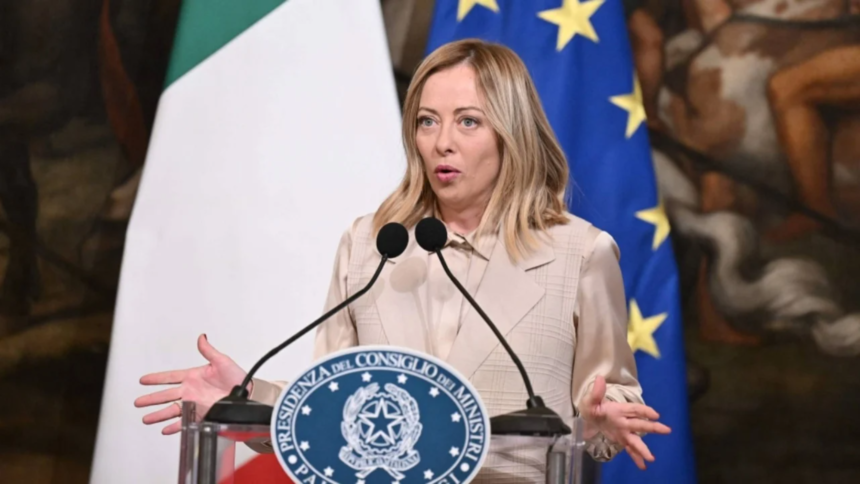Italian PM Giorgia Meloni accuses Russia of exploiting illegal migration to destabilize the EU, urging the bloc to strengthen border security and prepare for broader security threats.
Italian Prime Minister Giorgia Meloni has accused Russia of leveraging illegal migration as a tool to destabilize the European Union. Speaking at a press conference in Finland, Meloni highlighted the broader security implications of the ongoing geopolitical landscape.
Meloni’s Concerns
“We must understand that the threat is much broader than we imagine,” Meloni stated, emphasizing that the risks to EU security extend beyond the current conflict in Ukraine.
The Italian leader pointed out that threats to democracy, public opinion, and regional stability will persist even after the war in Ukraine concludes. She called for a comprehensive approach to address these challenges.
Key Areas of Concern
Meloni outlined the various ways Russia and other actors could impact EU security:
- Public Influence: Efforts to sway public opinion within the EU.
- African Instability: The ripple effects of geopolitical conflicts on African nations.
- Raw Materials: Disruptions in the supply of critical resources.
- Migration Instrumentalization: Using illegal migration to pressure and destabilize EU borders.
“This is about our democracy, about public opinion, about what happens in Africa, about raw materials, and the instrumentalization of migration,” Meloni elaborated.
Call for EU Action
Meloni urged the European Union to strengthen its border protections to mitigate these threats. She highlighted the need for the EU to adopt a broader concept of security, which includes preparing for unconventional tactics employed by adversaries.
“We need to understand that security is a very broad concept,” Meloni concluded, calling for unified efforts within the EU to address these multifaceted threats.
Implications
Meloni’s remarks come as Europe grapples with rising migration pressures and geopolitical tensions. Her comments add to the growing discourse on how external actors might exploit vulnerabilities within the EU, reinforcing the need for collective vigilance and proactive measures.







